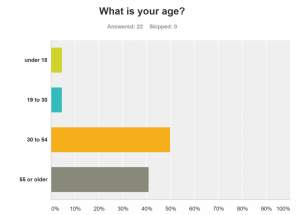Kids are Not the Future of Ham Radio
Kids are Not the Future of Ham Radio
By Bob Witte, K0NR
You’ve heard it a million times: our kids are the future. That statement gets applied to almost everything, including amateur radio. How can you argue with an obvious fact like that?
But I am starting to think it is incorrect.
We’ve had really good success on creating new hams of all ages in our Technician License Class (at the Tri-Lakes Monument Radio Association). We’ve been doing this for a while now and I think I am seeing a pattern emerge. We’ve been able to attract middle schoolers to the class and help them get their ham radio license. I’ve talked to many of them on the air. They’ve helped out with public service events. They seem to have fun playing with radios.
Then this thing called high school happens. The high school phase in the US is filled with tons of stuff to do: studying, homework, AP classes, science competitions, sports, dating, movies, driving and after school jobs. Way too much stuff. Ham radio starts to take a backseat to these normal high school activities. Then we don’t see the kids at the radio club meetings or chatting on the local repeater because they are busy doing other things. Have we lost them forever? Not sure.
High school is often followed by college which has its own set of challenges: a totally new environment, away from home, a new set of people, new studies, etc. There might be a ham radio club on campus but maybe not. If a kid is not off to college they are (hopefully) out doing something to establish themselves in this world. Eventually they emerge on the other side, get a job, get themselves established, sometimes with a spouse and maybe a kid or two. By this time they are 25 to 30 years old, depending on the individual.
I recently posted about the demographics of our students in the Tech License Class (http://www.k0nr.com/
For whatever reason, it seems that most people find themselves in a situation as an adult that causes them to say “I want to get my ham radio license.” When asked why they want to get their ham license, the top response is always emergency/disaster communications, followed by backcountry communications, pursuing electronics as a hobby and learning about radio communications. I suspect that starting to be established in a community and having some disposable income also play a role.
My hypothesis is that the most effective way of growing a vibrant ham radio community is to target adults ages 25 to 40.
This age range is more equipped and ready to be ham radio operators and are still young enough that they will be around for a while. Of course, we still want to work with all age groups, including kids and retirees. We’ve all seen very young hams get the bug for ham radio early and carry it throughout their life. And we also see plenty of older folks get interested in the hobby as they approach or enter retirement. We don’t want to miss out on either of those groups.
So that’s my read on the situation. I’ve got some data to support my theory but I can’t really prove it. What do you think? What are you seeing in your ham radio community?
Bob Witte, K0NR, blogs about amateur radio at K0NR.Com. You can find this post at http://www.k0nr.com/wordpress/
